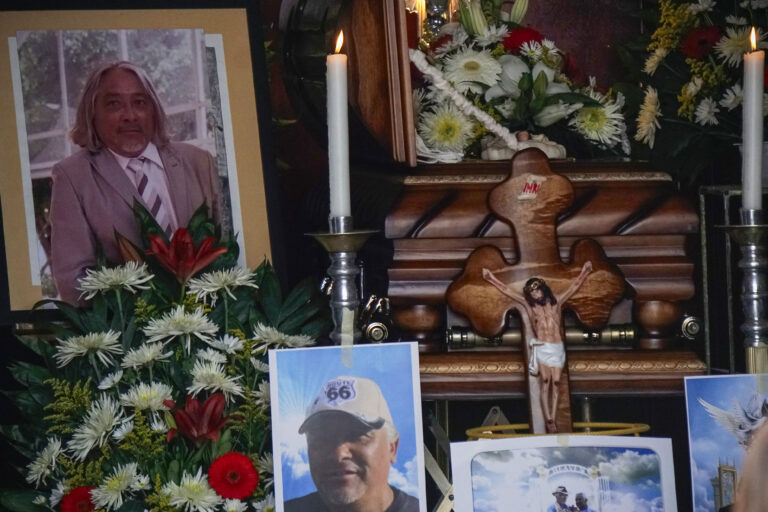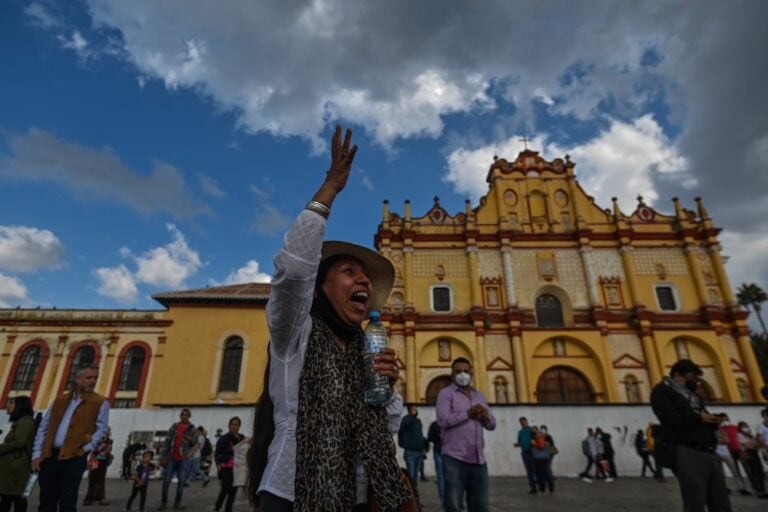(RSF/CEPET/IFEX) – The following is an abridged version of a 22 January 2009 joint RSF and CEPET press release: MEXICO SELF-CENSORSHIP, EXILE OR CERTAIN DEATH: THE CHOICE FACED BY JOURNALISTS IN CIUDAD JUÁREZ Reporters Without Borders and the Centre for Journalism and Public Ethics (CEPET), a Mexico City-based press freedom organisation, are today releasing the […]
(RSF/CEPET/IFEX) – The following is an abridged version of a 22 January 2009 joint RSF and CEPET press release:
MEXICO
SELF-CENSORSHIP, EXILE OR CERTAIN DEATH: THE CHOICE FACED BY JOURNALISTS IN CIUDAD JUÁREZ
Reporters Without Borders and the Centre for Journalism and Public Ethics (CEPET), a Mexico City-based press freedom organisation, are today releasing the results of a joint fact-finding visit to the northern border city of Ciudad Juárez, Chihuahua, that was prompted by the 13 November 2008 murder of Armando Rodríguez Carreón of the newspaper “El Diario” and a wave of violence that has forced journalists to flee into exile.
A news conference is to be held today in Mexico City to present the report, the full text of which can be downloaded in Spanish from the Reporters Without Borders website, http://www.rsf.org/IMG/pdf/090122_Reporte_Juarez.pdf
“This report highlights the terrible dilemma that the region’s journalists face – censor themselves, go into exile or risk an almost certain death that will go completely unpunished,” Reporters Without Borders said. “It also points out that the deployment of many federal personnel – civilian and military – to this major drug-trafficking stronghold has not made the city any safer and has even exacerbated the violence.”
The press freedom organisation added, “The authorities have themselves become another source of fear for journalists. More than ever before, the federal government must keep a close eye on its own personnel and overcome a reluctance to accept that press freedom is threatened by these shocking levels of violence. We urge the authorities to act with resolve in ensuring protection and attention to victims, combating impunity and enforcing discipline within their own ranks.”
A joint Reporters Without Borders-CEPET team met with reporters, newspaper editors and radio station managers in Ciudad Juárez in early December. The visit coincided with a surge in violence resulting from clashes between members of the rival Juárez and Sinaloa cartels and a federal government offensive against both.
More than 4,000 people were killed as a result of the government offensive and attacks by drug trafficking cartels in Mexico in 2008. More than a quarter of these deaths, 1,456, occurred in Ciudad Juárez alone. “We are sick with fear, we know that if they want to kill you, they will kill you and no one is going to protect you,” a journalist told the delegation. “We are scared because of what we know, not because of what we publish,” another said.
Eight Ciudad Juárez journalists received threatening mobile phone messages claiming to come from a drug cartel in January 2008. The messages all said, “Don’t get mixed up with the wrong people,” or something very similar. Armando Rodríguez Carreón was one of the journalists. When he reported the thrreat to the Chihuahua state prosecutor’s office, he was told he should leave town as there was no way of guaranteeing his safety.
Rodríguez finally went back to work after a two-month break, while other journalists
preferred to go into self-exile. He was gunned down on 13 November as he was taking
his children to school. There were more telephone threats against journalists during
his funeral the next day. As a result, the number of journalists leaving the region or the
country increased.
To read the full press release, see: http://www.rsf.org/article.php3?id_article=30074
For further information on the Rodríguez case, see: http://ifex.org/en/content/view/full/98510


